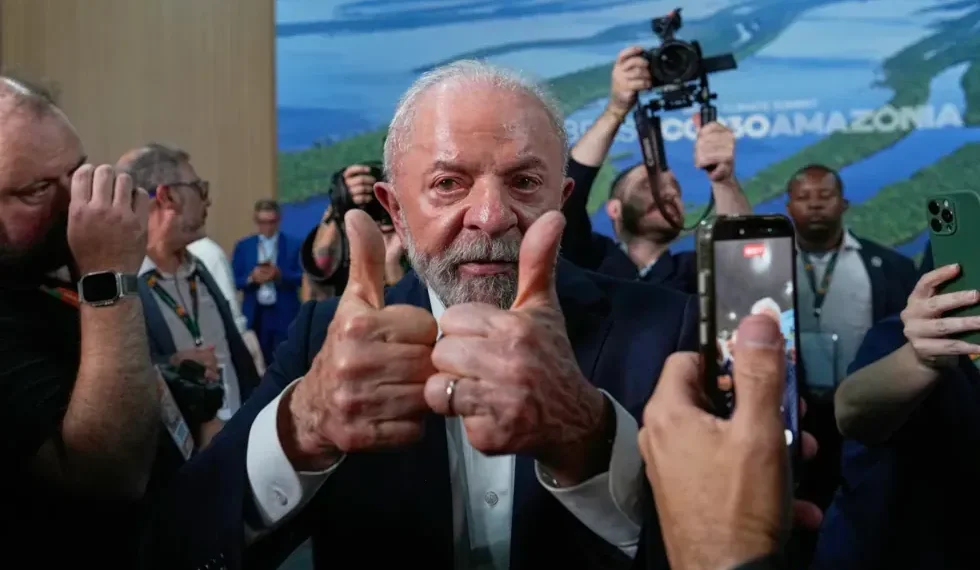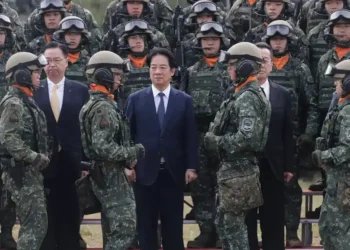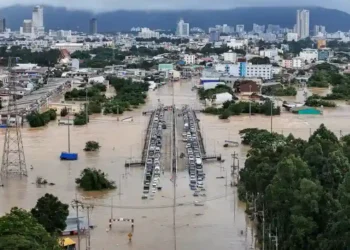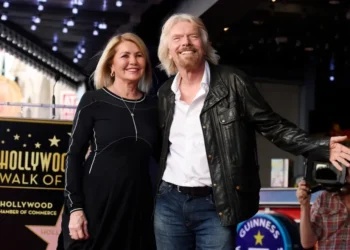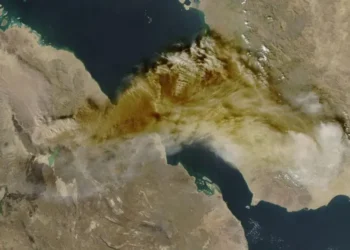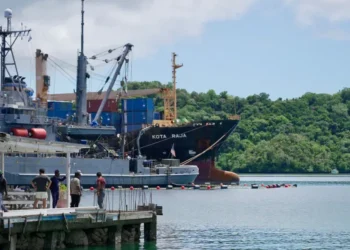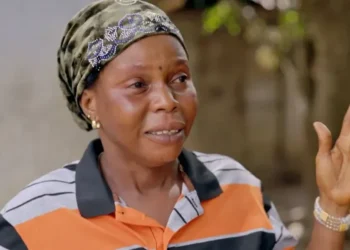EU–Latin America Summit in Colombia Dominated by U.S. Military Controversy
Representatives from Europe, Latin America, and the Caribbean convened in Santa Marta, Colombia, on Sunday for a two-day summit aimed at strengthening interregional cooperation. However, the meeting was overshadowed by anger and unease over a recent U.S. military operation that killed more than 60 people in the Caribbean and Eastern Pacific — drawing sharp condemnation from Colombian President Gustavo Petro and other regional leaders.
A Summit in the Shadow of Conflict
The summit between the Community of Latin American and Caribbean States (CELAC) and the European Union was intended to focus on renewable energy, food security, and technological cooperation. Yet, tensions surrounding U.S. military actions have dominated discussions, diverting attention from the summit’s core economic and environmental agenda.
Colombian President Gustavo Petro, one of the most vocal critics of the U.S. operation, condemned the attacks during his opening remarks, calling them “extrajudicial executions.” The U.S. strikes, targeting vessels accused of trafficking drugs, have killed over 60 people since September, including at least one confirmed Colombian citizen. Two survivors of the attacks have been identified — both Colombians.
“What are we doing with this meeting in today’s world amidst missiles?” Petro asked in his address, drawing parallels between the naval strikes and global conflicts such as the war in Gaza. He urged attendees to make the summit “a beacon of light amidst the barbarity.”
Absent Leaders Raise Questions About Summit’s Relevance
The meeting’s impact has been tempered by the absence of major European leaders, including European Commission President Ursula von der Leyen and German Chancellor Friedrich Merz, whose offices cited scheduling conflicts with the United Nations Climate Summit.
Colombia’s Foreign Ministry has downplayed the absences, emphasizing the participation of Spanish Prime Minister Pedro Sánchez and Brazilian President Luiz Inácio Lula da Silva as proof of the summit’s diplomatic importance.
Despite the controversy, several leaders highlighted the progress achieved in areas such as digital connectivity, green transition, and artificial intelligence cooperation.
“We choose dialogue, not division; we choose cooperation, not confrontation,” said European Council President António Costa, stressing the importance of multilateralism but avoiding direct reference to the U.S. strikes.
Lula’s Surprise Attendance and Regional Solidarity
Brazilian President Luiz Inácio Lula da Silva surprised observers by attending the summit despite hosting the COP30 climate conference in Brazil. His presence was seen as a gesture of solidarity with Venezuela, which has been under renewed U.S. pressure following recent threats of military intervention by President Donald Trump.
Brazilian Foreign Minister Mauro Vieira told reporters that Lula’s attendance reflected “regional unity and diplomatic balance.” According to Brazilian Ambassador Gisela Padovan, the U.S. attacks and Venezuela issue were expected to surface during closed-door discussions.
“It’s clear that the topic will come up because the Venezuelan delegation will bring it up,” Padovan said, although she declined to confirm whether the summit’s final communiqué would address the strikes directly.
U.S. Strikes and Political Fallout
The U.S. operation in question has been one of the most controversial military actions in the Caribbean in recent years. According to regional observers, the naval strikes — authorized under Washington’s counter-narcotics initiative — destroyed multiple vessels allegedly involved in drug trafficking but also resulted in significant civilian casualties.
President Petro’s government has demanded accountability and an independent investigation, calling the attacks a violation of international law. The Colombian leader’s stance has gained support from several regional allies, including Mexico, Chile, and Argentina, who have expressed concerns about U.S. interventionism.
Lula’s Diplomatic Outreach to Trump
Ahead of the summit, Lula revealed that he had personally appealed to Donald Trump during a meeting in Malaysia to refrain from escalating tensions in Venezuela. “I told Trump that Latin America is a region of peace,” Lula said, referencing the U.S. role in supporting mediation after Venezuela’s 2002 coup attempt.
Analysts view Lula’s engagement as an effort to revive regional diplomacy and avoid further military confrontation. “Brazil is positioning itself as a stabilizing voice in a hemisphere marked by renewed geopolitical tension,” said Alexander Main, international policy director at the Center for Economic and Policy Research.
A Divided Hemisphere in a Multipolar World
The Santa Marta summit is seen as the final high-level interregional gathering of 2025, following the postponement of the Summit of the Americas. Its timing has allowed Latin American nations to discuss U.S. military actions without direct U.S. participation — a rare opportunity for candid regional dialogue.
“It is clearly a priority for several regional leaders,” Main added, noting that the summit could define the tone of EU–Latin American relations heading into 2026.
Despite divisions, many participants stressed the need for continued cooperation on trade, green energy, and digital transformation. But with rising tensions over U.S. intervention and the absence of key European leaders, the summit’s outcomes may struggle to match its ambitious goals.
Conclusion: A Test for Multilateralism
As the Santa Marta summit concludes, its success may be judged less by the agreements signed and more by the conversations it enables. For nations caught between the influence of Washington and Brussels, the gathering serves as both a diplomatic balancing act and a test of whether global South–North partnerships can withstand mounting geopolitical strain.
President Petro’s call for peace and dialogue echoed through the closing sessions — a reminder that even amidst missiles and mistrust, diplomacy remains the region’s last bridge to stability.
This article was rewritten by JournosNews.com based on verified reporting from trusted sources. The content has been independently reviewed, fact-checked, and edited for accuracy, neutrality, tone, and global readability in accordance with Google News and AdSense standards.
All opinions, quotes, or statements from contributors, experts, or sourced organizations do not necessarily reflect the views of JournosNews.com. JournosNews.com maintains full editorial independence from any external funders, sponsors, or organizations.
Stay informed with JournosNews.com — your trusted source for verified global reporting and in-depth analysis. Follow us on Google News, BlueSky, and X for real-time updates.
